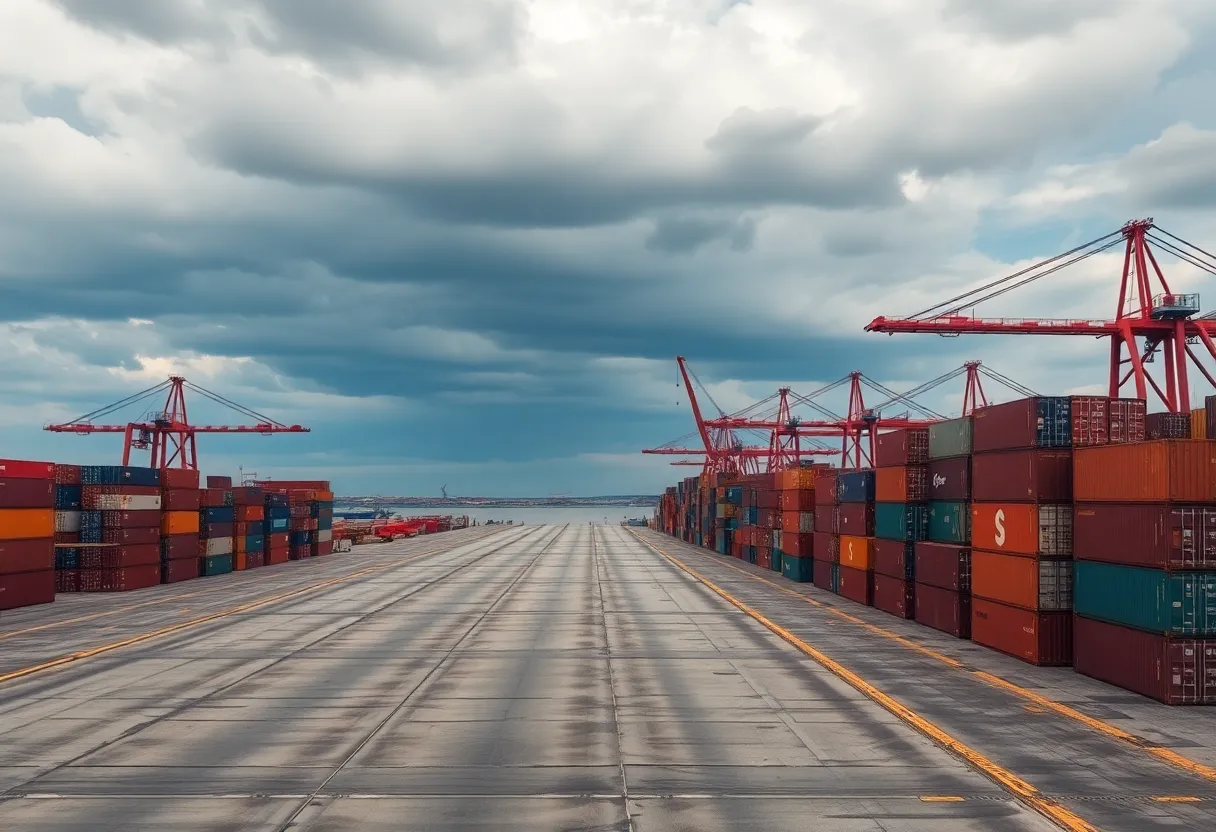News Summary
California’s major ports, especially the Port of Los Angeles and Port of Long Beach, are facing an unprecedented decline in cargo traffic due to recent tariffs on imports from China. With the Port of Long Beach reporting a staggering 35-40% drop in cargo volumes, concerns are growing about the broader economic impacts. The tariffs, which impose high duties on goods from China, are expected to affect consumer prices and may threaten 2 million jobs in the region. As shipping levels plummet, local economies are bracing for potential repercussions.
California is witnessing an alarming downturn in cargo traffic at its major ports, particularly following the implementation of substantial tariffs on imports from China by President Trump. As of Friday morning, the two key West Coast ports—Port of Los Angeles and Port of Long Beach—saw no cargo ships departing from China in the previous 12 hours, marking an unprecedented moment since the onset of the pandemic.
Just six days earlier, the shipping schedules showed that 41 vessels were set to leave China for the San Pedro Bay Complex, which includes both ports. The rapid decline in vessel traffic is directly associated with the recent tariffs that have raised costs for businesses engaged in trade with China, a crucial trading partner for the U.S.
Mario Cordero, CEO of the Port of Long Beach, has raised concerns over this swift decline in cargo traffic, highlighting that current figures have dipped below levels observed during the pandemic. Specifically, cargo volumes at the Port of Long Beach have plummeted by 35-40% compared to typical levels, while the Port of Los Angeles has reported a 31% decline in cargo volume this week alone. The ongoing disruptions are not isolated; the Port of New York and New Jersey is also preparing for reduced cargo traffic, and the Port of Seattle recorded zero container ships in port on Wednesday, another unusual occurrence since the pandemic.
Impact of Tariff Policies
The tariffs introduced last month are extensive, placing a staggering 145% tariff on most goods imported from China and a 125% tariff on exports heading to China. Discussions between U.S. and Chinese trade representatives are on the horizon, with a meeting scheduled in Geneva aimed at addressing and potentially de-escalating the trade war. Furthermore, President Trump has hinted at the possibility of reducing the tariff rate to 80%, with leadership in the Treasury Department set to finalize these decisions.
Consumers are likely to feel the repercussions of these trade policies almost immediately, with expectations of increased prices and possible shortages of certain products emerging within the next month. Notably, cargo from China previously constituted 63% of the volume at the Port of Long Beach, a significant decrease from 72% in 2016.
Declining Trade Volumes
The shipping company Maersk has reported a 30-40% decline in cargo volume between the U.S. and China compared to standard levels. If trade tensions are not resolved quickly, there’s a strong possibility that empty store shelves could become a reality, as emphasized by Cordero.
The Port of Long Beach is projecting a further significant decrease in import volumes between mid-April and mid-May, with estimates suggesting a 44% drop in vessel calls year-over-year for the week beginning May 4th. Local economic analyses indicate that the tariffs could jeopardize $500 billion in regional revenue and threaten approximately 2 million jobs within the local area.
Long-term Economic Concerns
According to the World Trade Organization, the ongoing trade tensions could see a reduction of U.S.-China trade by around 80%. Many companies are starting to react to the reduced cargo volume by canceling warehouse leases, which raises the imminent risk of job losses in the sector. Economic experts have pointed out that even if manufacturing operations relocate back to the U.S., the costs associated with domestic production are likely to retain elevated pricing levels.
The Port of Long Beach is critical to the economic framework of the region, with one in nine jobs within Greater Los Angeles linked to activities at the port. As the situation escalates, the implications associated with diminished cargo traffic are likely to resonate through various sectors in the local economy.
Deeper Dive: News & Info About This Topic








